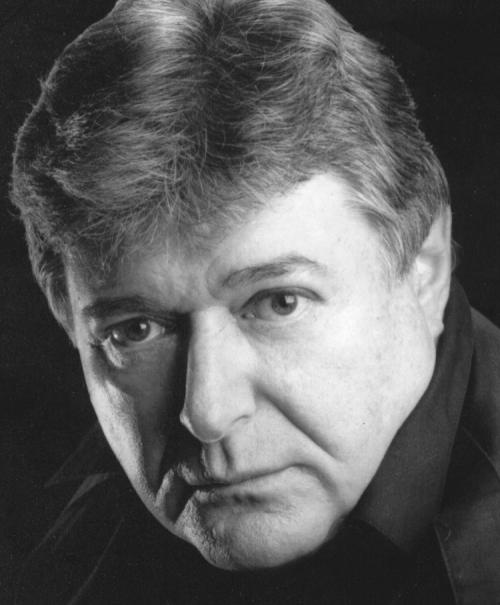

|
Born in New Jersey, Marvin David Levy (August 2, 1932 - February 9, 2015) began studying piano as a young child and studied with the legendary piano pedagogue Carl Friedberg at The Juilliard School. After turning his attention to composition, Levy studied with Philip James at New York University, where he received his B.A., and was then a pupil of the pioneering American composer Otto Luening at Columbia University, receiving his master’s degree in music there in 1956. While a student, Levy was the archivist of the American Opera Society, and later its assistant director, and he also worked as a freelance music critic. His interest in theatrical music—including but not confined to opera—grew during those years. During summers he was an apprentice stage director at music-theater workshops, where he soon directed full productions ranging from My Fair Lady to Carmen. Also during the 1950s he wrote three one-act operas, whose premieres he also directed: The Tower (1956), a comic biblically based fable for the Santa Fe Opera; Sobota Komachi (1957), based on a 14th-century Japanese Noh play; and Escorial (1958), based on a play by Michel de Ghelderode. In 1959, Levy’s oratorio For the Time Being, on a text by W. H. Auden, was performed and commercially recorded at Carnegie Hall, narrated by Claude Rains, with vocal soloists Lucine Amara, Maureen Forrester, Reri Grist, and Ezio Flagello. “I find a new young [Benjamin] Britten lurking in you,” wrote Leonard Beernstein to Levy after that performance, “and I think that before you are through you’ll make opera history.” Indeed, Levy did, only a few years later, when the Ford Foundation commissioned him to write an opera for the opening season of the Metropolitan Opera at its new house at Lincoln Center. Mourning Becomes Electra, based on Eugene O’Neill’s modern adaptation and interpretation of the Aeschylus play, premiered at the Met in 1967 and received instant critical acclaim and international attention. Unprecedented for the Met, the opera remained in the repertoire for several seasons. “A tremendous achievement, a remarkable work,” wrote Bernstein to Levy. Notwithstanding his numerous other works and achievements, Mourning Becomes Electra remains Levy’s best-known work. It was restaged by the Chicago Lyric Opera in 1998 in a revised version. Levy has been the recipient of many honors, including two Guggenheim Fellowships and two Prix de Rome awards. Among his other important works, apart from those recorded for the Milken Archive, are The Zachary Star, a children’s opera (with both children’s and adult roles), with alternate Christmas and Hanukka versions; a symphony; a piano concerto written for Earl Wild, who premiered it with the Chicago Symphony Orchestra conducted by Georg Solti; Kyros, a dance-poem for chamber orchestra; Trialogus, also performed by the Chicago Symphony; Pascua Florida and The Arrows of Time; and a Passover opera commissioned for an ABC network television broadcast by the Jewish Theological Seminary. -- By Neil W. Levin [posted on the Milken Archive]
|
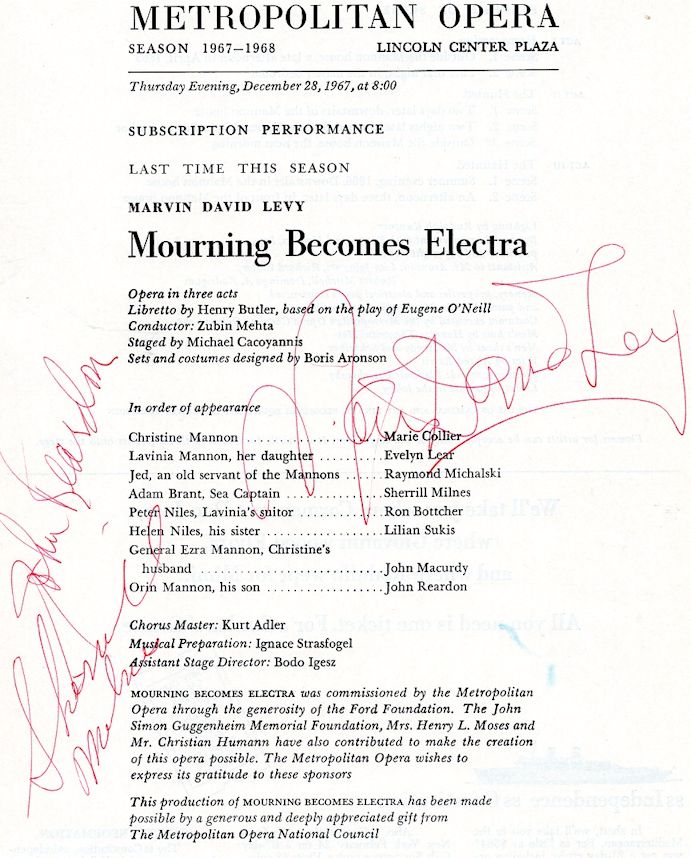 BD: That’s my question. Is
there any future for the form?
BD: That’s my question. Is
there any future for the form?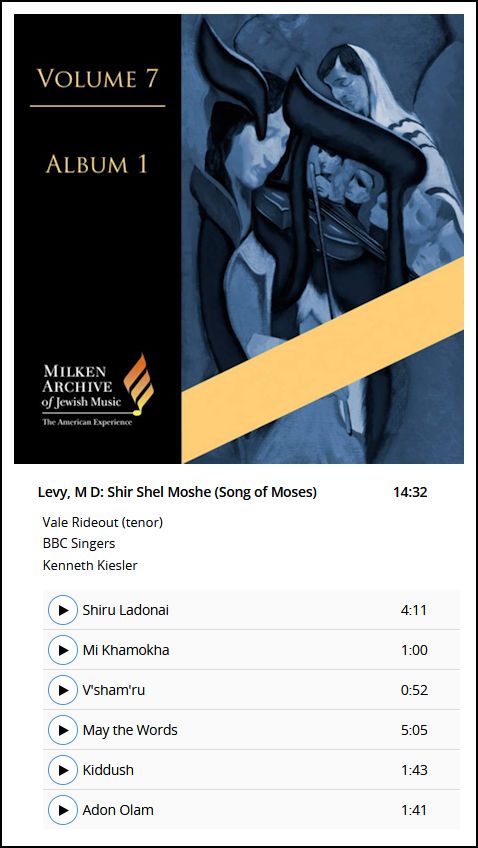 MDL: Yes, my idiom is popular.
I’m not writing an opera, I’m writing a ‘musical with operatic pretentions’
— at least that’s what I call it. [Both laugh]
It happens to be very funny, and I can parody a lot of things I know
very well, including myself. I may not be old enough, yet, to do
it too well. Verdi did it in Falstaff, but it’s totally accessible,
sometimes popular, and sometimes operatic, depending on the situation.
It won’t be done in an opera house. That’s another part of the problem
— the opera houses. They’re gargantuan stadiums
where people have to scream their lungs out to be heard. You can’t
put small things that change harmony quickly into such a big house.
I’ll give you an example. Stravinsky’s The Rake’s Progress was
done in New York for the first time in the early 1950s. That is a
chamber opera, first done in La Fenice in Venice. He wrote it as a
chamber opera with a Mozart-size orchestra. His music changes harmonically
by the second, practically. You haven’t finished hearing one thing before
the next is sent out to you. You can’t understand what that music is
like in a big house. At the Met, it just clutters up your ear because
of the resonance of that house. So you can’t really do small operas
in big houses, and nobody is going to do big operas like Mourning Becomes
Electra. The future of American opera is in smaller theaters where
they can afford to produce it.
MDL: Yes, my idiom is popular.
I’m not writing an opera, I’m writing a ‘musical with operatic pretentions’
— at least that’s what I call it. [Both laugh]
It happens to be very funny, and I can parody a lot of things I know
very well, including myself. I may not be old enough, yet, to do
it too well. Verdi did it in Falstaff, but it’s totally accessible,
sometimes popular, and sometimes operatic, depending on the situation.
It won’t be done in an opera house. That’s another part of the problem
— the opera houses. They’re gargantuan stadiums
where people have to scream their lungs out to be heard. You can’t
put small things that change harmony quickly into such a big house.
I’ll give you an example. Stravinsky’s The Rake’s Progress was
done in New York for the first time in the early 1950s. That is a
chamber opera, first done in La Fenice in Venice. He wrote it as a
chamber opera with a Mozart-size orchestra. His music changes harmonically
by the second, practically. You haven’t finished hearing one thing before
the next is sent out to you. You can’t understand what that music is
like in a big house. At the Met, it just clutters up your ear because
of the resonance of that house. So you can’t really do small operas
in big houses, and nobody is going to do big operas like Mourning Becomes
Electra. The future of American opera is in smaller theaters where
they can afford to produce it.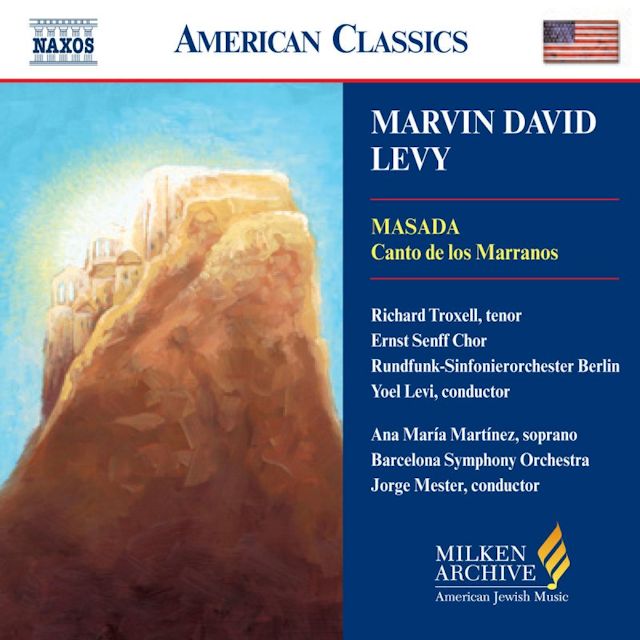 MDL: There are all kinds of subtle changes in it.
Certainly, what strikes me as valid or important when I’m twenty doesn’t
mean the same thing to me when I’m fifty. We all change as we grow,
and we have different ideas about emotions. Mostly, we shed emotions
as we grow older. On the other hand, you can also create much more sensitive
ones that take more time. I find myself able to take the time in the
music, and have the patience to plumb the depths of an idea if I think it’s
a good one. I may not have done that when I was a kid.
MDL: There are all kinds of subtle changes in it.
Certainly, what strikes me as valid or important when I’m twenty doesn’t
mean the same thing to me when I’m fifty. We all change as we grow,
and we have different ideas about emotions. Mostly, we shed emotions
as we grow older. On the other hand, you can also create much more sensitive
ones that take more time. I find myself able to take the time in the
music, and have the patience to plumb the depths of an idea if I think it’s
a good one. I may not have done that when I was a kid.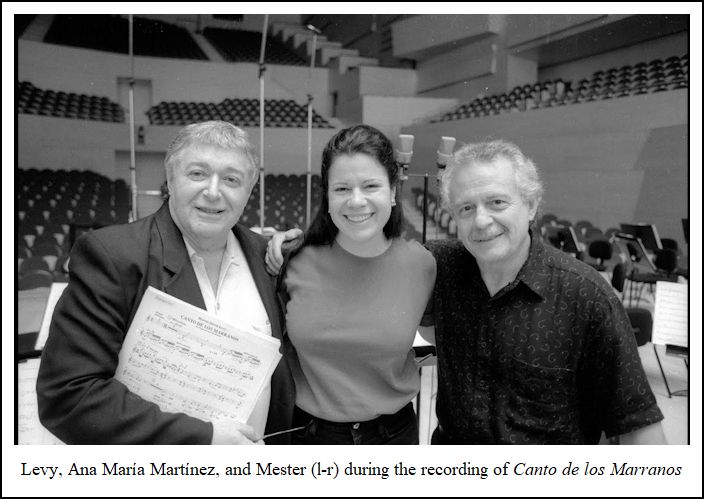 MDL: One can’t say it’s controlling you, but what happens
is that when you deal with characters, they seem to take on a life of their
own. It’s not that they do, but it seems that way in the sense that
you get to know them so well that you can foresee what they’re going to do.
I can sing what they’re going to sing, and I can be those characters almost.
Once that happened, I knew I was in the right ball park, and it wasn’t an
opera anymore. I knew what the characters were going to do next, and
how they would do it. It’s not me anymore in the sense that the mind
you’re creating tells you what it would do, and that’s what they do, so
that’s what I make them do. You have to get into people and their
ideas. Writing an opera is not just music with orchestra. That’s
nonsense.
MDL: One can’t say it’s controlling you, but what happens
is that when you deal with characters, they seem to take on a life of their
own. It’s not that they do, but it seems that way in the sense that
you get to know them so well that you can foresee what they’re going to do.
I can sing what they’re going to sing, and I can be those characters almost.
Once that happened, I knew I was in the right ball park, and it wasn’t an
opera anymore. I knew what the characters were going to do next, and
how they would do it. It’s not me anymore in the sense that the mind
you’re creating tells you what it would do, and that’s what they do, so
that’s what I make them do. You have to get into people and their
ideas. Writing an opera is not just music with orchestra. That’s
nonsense.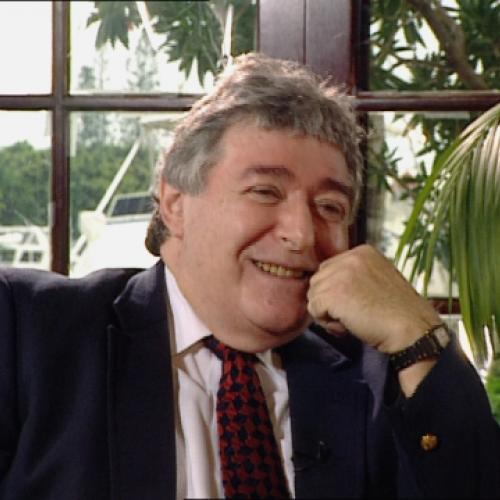 BD: I assume you take at least a few days off and
just plop after you’ve completed a work?
BD: I assume you take at least a few days off and
just plop after you’ve completed a work?
========
========
========
---- ---- ----
======== ========
========
© 1987 Bruce Duffie
This conversation was recorded in Chicago on October 13, 1987. It was transcribed and published in The Opera Journal, #3, 1992. Portions were broadcast on WNIB in 1998. This edition was made in 2020, and posted on this website at that time. My thanks to British soprano Una Barry for her help in preparing this website presentation.
To see a full list (with links) of interviews which have been transcribed and posted on this website, click here.
Award - winning broadcaster Bruce Duffie was with WNIB, Classical 97 in Chicago from 1975 until its final moment as a classical station in February of 2001. His interviews have also appeared in various magazines and journals since 1980, and he now continues his broadcast series on WNUR-FM.
You are invited to visit his website for more information about his work, including selected transcripts of other interviews, plus a full list of his guests. He would also like to call your attention to the photos and information about his grandfather, who was a pioneer in the automotive field more than a century ago. You may also send him E-Mail with comments, questions and suggestions.